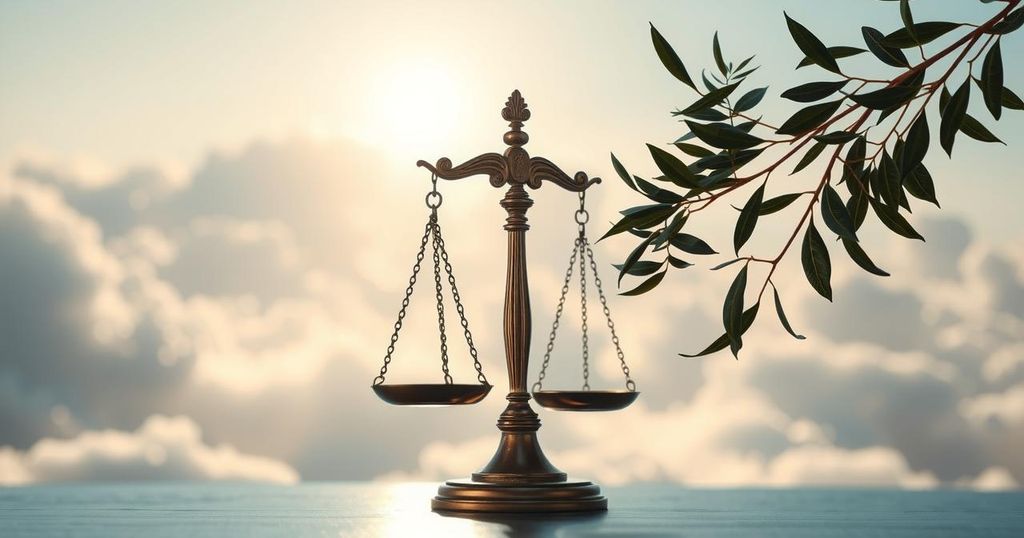The UNHRC Core Group on Sri Lanka presented a report evaluating the nation’s political and human rights developments after the recent government transition. Acknowledging positive steps towards reconciliation, the report urges continued reform, alignment with international laws, and the involvement of affected communities in the reconciliation process. The Sri Lankan government outlined its commitment to democracy and human rights while rejecting several UN resolutions.
The United Nations Human Rights Council (UNHRC) recently received a joint report from the Sri Lanka Core Group, which comprises the United Kingdom, Canada, Malawi, Montenegro, and North Macedonia. This report evaluates Sri Lanka’s political and human rights situation following recent changes in government and was submitted during the 58th session of the UNHRC.
The report acknowledged the peaceful conduct of Sri Lanka’s elections and the subsequent smooth transition of power. It urged the new Sri Lankan Government, having been in power for merely four months, to seize this transitional phase as an opportunity to confront existing challenges, emphasizing the need for constructive action.
Furthermore, the Core Group expressed appreciation for the government’s initiatives toward reconciliation, including the return of land to communities and the removal of roadblocks. They noted the government’s allowance for commemorative actions in the North and East, encouraging continued commitments to constitutional devolution and governance reforms.
The report also highlighted the government’s intention to repeal the Prevention of Terrorism Act, urging that any new legislation aligns with international obligations. The Core Group urged for the release of individuals detained under this Act as it emphasized the importance of community support for reconciliation and accountability processes.
Moreover, the Core Group called on the government to revitalize domestic institutions responsible for reparations and the missing persons’ issues. Reaffirming their willingness to collaborate, they insisted that future transitional justice mechanisms be independent, inclusive, and responsive to the needs of affected communities.
In response, the Sri Lankan government presented an oral report to the UNHRC, outlining its efforts to promote a new political culture alongside advancements in economic and social facets. The government reiterated its dedication to democracy and human rights for all citizens, while simultaneously rejecting specific UN resolutions related to Sri Lanka’s human rights situation.
In summary, the report from the Sri Lanka Core Group to the UNHRC underscores a critical juncture for the new Sri Lankan Government, emphasizing the necessity of addressing human rights issues and engaging in meaningful reconciliation. It recognizes worth efforts made thus far while advocating for further improvements aligned with international norms and community involvement. The Sri Lankan government, while releasing its own report, reaffirms its commitment to democratic values despite dissenting views on UN resolutions.
Original Source: www.adaderana.lk




